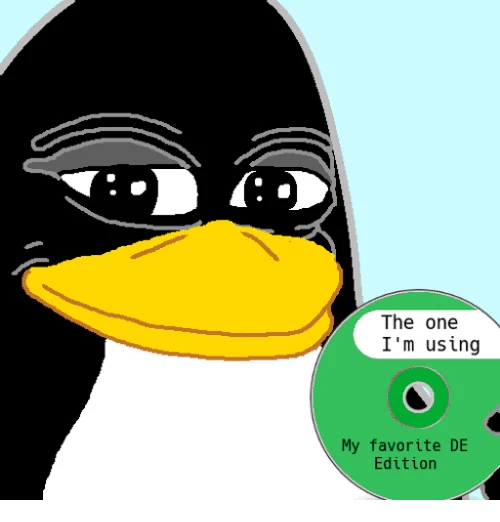Just curious, and I haven't googled because I already know it's not going to answer the question ....
So say hypothetically I launch an API to run in-line C code from the terminal. It'd just be a basic shell script that has a skeleton of a .c file and injects STDIN straight into the main function. The only header would be <stdio.h> Is it possible to do this securely? Or is the simply allowing arbitrary C even with these restrictions a recipe for pwnage.
So it'd be just
In the endpoint directory:
index.php
run.sh
index.php would receive the string and call shell to remove comments
:a;s@//.*@@;ta; :a;s@/\*@@;ta; :a;s@\*/@@;ta;
then it would just echo out
#include <stdio.h>
int main(void) {
**
<<user input>>
**
return 0; }
into a temporary.c , compile, and then php can capture the output into a variable and with that reply to the API call.
I'm gonna do this anyway on a throwaway server but I was wondering mostly out of curiosity whether even this can be exploited. (i.e. somehow adding more headers and executing a fork bomb or something)




.webp?h=8)




Jump in the discussion.
No email address required.
nah, I'm sure it's fine
Jump in the discussion.
No email address required.
thanks everyone in this thread is so negative smh u just gotta have a positive outlook
Jump in the discussion.
No email address required.
They're all ignorant fools for not sharing your vision. Pay them no sneed
Jump in the discussion.
No email address required.
More options
Context
More options
Context
More options
Context
Yes that's just arbitrary code execution. That's the worst thing you can do security wise.
When you compile C code,
#includeis a preprocessor directive to copy the library's code directly into the file.Jump in the discussion.
No email address required.
so one could even load a library from inside of main? I thought I was being slick by hardcoding that
Jump in the discussion.
No email address required.
An #include is never necessary, you can always supply your own defines and type and function definitions, and can inject arbitrary code easily. See this stupid example:
(Only works on Intel and AMD systems, because the payload is AMD64)
Jump in the discussion.
No email address required.
C is so awesome 's#(void*|void *)#foid#g'
's#(void*|void *)#foid#g'
Jump in the discussion.
No email address required.
More options
Context
More options
Context
C std has
system()that passes arbitrary commands to the shellJump in the discussion.
No email address required.
More options
Context
More options
Context
More options
Context
hahaha absolutely not lmao
input could just be
edit: someone could also write code in
main()that writes a new .sh file and then executes that so they can run basically any program on your server, or even just directly shellcode out via an intentional buffer overflow.Jump in the discussion.
No email address required.
aw jeez aw jees I'm so r-slurred
sed 's@return@retvrn@g'
sed 's@#include@#inklood@g'
there's gotta be a list
mann i didn't wanna pay $2/mo just to have terminal C lol
Jump in the discussion.
No email address required.
just run a C compiler locally lmao wtf is the issue here?
anyways you could write a shellcode without either of those keywords that breaks out of the C program via a buffer overflow and executes /bin/sh directly w/ whatever command you want.
Jump in the discussion.
No email address required.
well.. portability lol
i write random QOL programs that I use across devices and it's just easier to have a cli api interface with a script that just runs a curl call than to have the files duplicated across all my devices and unlinked
so if I
somename clic 'i=2; n=4; printf("%d", i+n);'
it sounds kinda dumb but it's to help me find edgecases with api calls + get more comfortable with C
Jump in the discussion.
No email address required.
I really don't think I follow here. multiple devices, like RasPis or something?
You can write a webapp that performs arbitrary remote code execution if you want. But make sure it's secure. At the very least it should run behind a reverse proxy that does HTTPS (you can use LetsEncrypt/certbot to get the certificate(s) for free) and has some form of authentication, client certs would be best but at least HTTPS auth. Make sure it binds to 127.0.0.1 so only the reverse proxy (ie nginx) can access it directly and also make sure it runs as its own user (do NOT run it as root).
If you just want to sync things up, can you just use a git repo? Push once, pull from different places. GitHub and GitLab are both free to use I think, I know GitLab lets you host private repos for free (or at least did once upon a time, I run my own GitLab server these days so I'm not sure what their public offerings are like). You can of course use Git without a central web service like that but it's a bit more involved and probably not worth it. Using Git is gonna be more direct than whatever it is you're trying to build here though.
Jump in the discussion.
No email address required.
Posts like this is why I do Heroine.
Jump in the discussion.
No email address required.
Jump in the discussion.
No email address required.
More options
Context
More options
Context
I have like 8 servers I pay maybe $2/mo for and like another 4 I pay $7/mo for, and like.. 15 or 20 domains for the purposes of acting on my impulses when I wanna learn while not caring at all what happens to the servers
Idk how to use nginx lmao but I do use certbot to validate my domains with letsencrypt and everything is over https always.
apache uses www-data as the user and it seems pretty restricted as I had trouble at first just making basic syscalls with php thru the browser, I think (could b wrong) www-data is nicely chrooted to /var/www or something
I don't really need version control if I'm gonna host a git it'd just add a bunch of extra steps for what I'm doing, and yeah I plan to get a rasp pi, I have a pico that apparently connects to wifi, and I have a bunch of phones I use for different things (i.e. this one I use pretty much only for rdrama and programming lol)
Jump in the discussion.
No email address required.
Have you heard of SNI? You don't need multiple servers for the different domains. Just point all your domains at one IP, only allow HTTPS (you can auto-redirect to HTTPS pretty easily, not sure how to do it in apache but it's dead simple in nginx), and use SNI to determine which certificate to use and which downstream to connect to (just run multiple systems on different local ports). I've got about a dozen different subdomains I use for various services I host locally and they all go to the same nginx which forwards the requests along (after stripping TLS, which makes it way easier to manage since I don't need to lookup how to setup each separate project w/ TLS certs).
Anyways that's kinda besides the point I guess. At least use HTTP auth with a strong password (use a password manager if you don't already), although a client cert would potentially be more secure.
Aside from that, if you move forward with this "use PHP to dump user input into a .c file and then compile and run it", you should just assume that you're giving anybody with access to that webpage full shell access to your server, with the ability to run absolutely any command they could possibly want. If you're okay with that, then fine. I mean it's a VPS not your own server so maybe you don't care. Hopefully nobody breaks into it and uses your server to host illegal content/activity.
Jump in the discussion.
No email address required.
I do point more domains to a server sometimes but the whole point of having the servers is to not care about them getting pwned
they are very cheap vps slices
and yea I use keys for logging in and disable root login for any server with important info, but those don't even have web ports open I don't do any web server setup for servers with sensitive documents
as for all the other ones it's just a crappy but long password cuz idc what happens it's all just a bunch of practice code, I'll completely reset a server sometimes bcuz I don't feel like deleting programs I was testing lol
Jump in the discussion.
No email address required.
More options
Context
What?
Jump in the discussion.
No email address required.
omg frick off longy it's 3 short paragraphs
Jump in the discussion.
No email address required.
More options
Context
More options
Context
More options
Context
More options
Context
More options
Context
More options
Context
More options
Context
More options
Context
More options
Context
First, reset your shell with this
Then make sure your gcc is up-to-date.
gcc --version
Jump in the discussion.
No email address required.
what in the stallman
I didn't know you could fork in bash lmfao
e: he ran it
he ran it
Jump in the discussion.
No email address required.
More options
Context
thanks works great
Jump in the discussion.
No email address required.
More options
Context
More options
Context
Surely allowing users to execute arbitraty code will be safe
Jump in the discussion.
No email address required.
More options
Context
Jump in the discussion.
No email address required.
More options
Context
I don't think it matters that much that it's C vs anything else. As for whether it can be secure - sure, there are plenty of examples (you can use C on leetcode for example).
I'd probably start by looking into isolation from the rest of the system. Maybe each API call runs in a container with some limited resources and a fixed time limit?
Jump in the discussion.
No email address required.
More options
Context